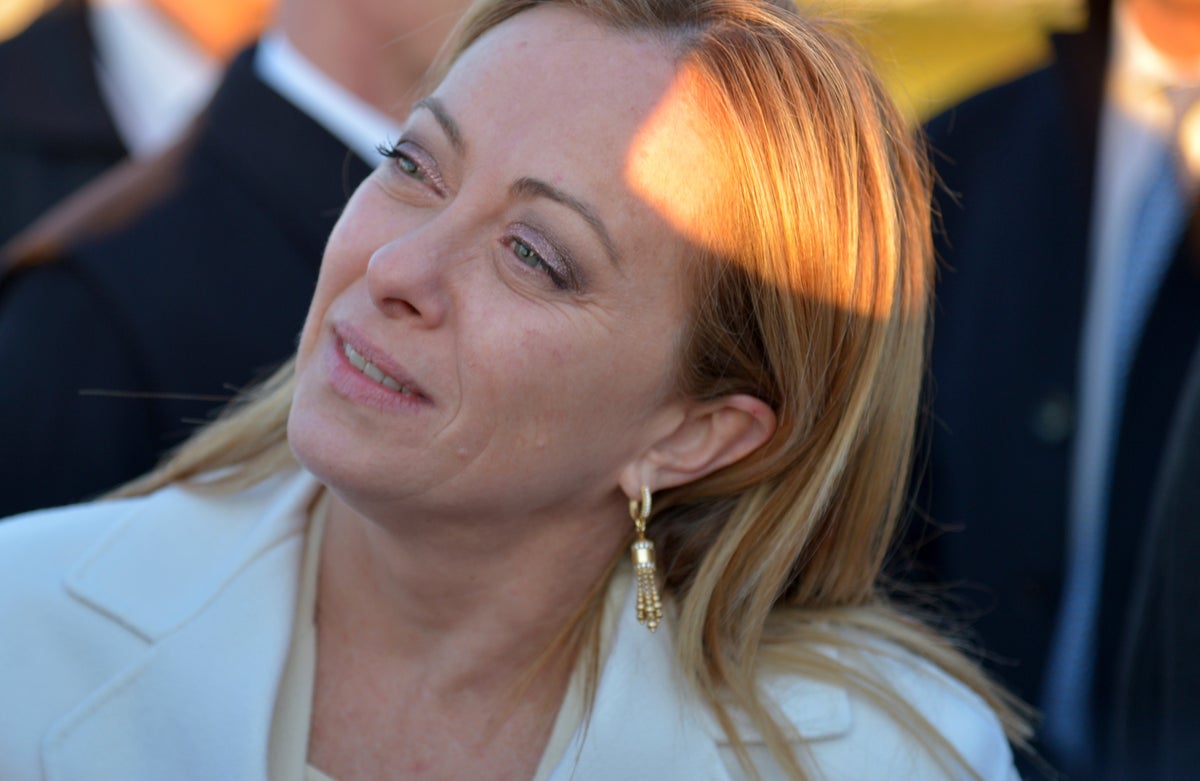
Italy’s prime minister arrived in Libya on Saturday for talks with officials from the country’s west-based government that will focus on energy and migration, top issues for Italy and the European Union.
Libya is the third North African country that Prime Minister Giorgia Meloni has visited over the last two weeks as she seeks to secure new supplies of natural gas to replace Russian energy amid Moscow's war on Ukraine. She previously visited Tunisia and earlier this week Algeria, Italy’s main supplier of natural gas, where she signed several memorandums.
Meloni landed at the Mitiga airport, the only functioning airport in Libya's capital, Tripoli, amid tight security and accompanied by Italian Foreign Minister Antonio Tajani and Interior Minister Matteo Piantedosi, her office said. She is set to hold talks with Abdel Hamid Dbeibah, who heads one of Libya’s rival administrations, and Mohamed Younis Menfi, who heads Libya's ceremonial presidential council.
Meloni was greeted at the airport by Najla Mangoush, the foreign minister of the Tripoli-based government. She got a bouquet of flowers and shook hands with a child.
During her visit, Italy’s state-run energy company, Eni, is expected to sign a $8 billion deal to develop two Libyan offshore gas fields to pump 850 million cubic feet per day, Farhat Bengdara, head of Libya’s National Oil Corporation, told a local television station earlier this week.
Eni declined to comment on his remarks. The Italian firm has continued to operate in Libya despite ongoing security issues, producing gas mostly for the domestic Libyan market.
Meloni, in office just three months, is the top European official to land in oil-rich Libya since the country failed to hold presidential and parliamentary elections in December 2021. That failure prompted Libya's east-based parliament to appoint a rival government after Dbeibah refused to step down.
Libya has for most of the past decade been ruled by rival governments — one based in the country's east, and the other in Tripoli, in the west — since after it descended into chaos following a NATO-backed uprising turned civil war in 2011 that toppled and later killed longtime autocratic ruler Moammar Gadhafi.
Piantedosi’s presence during the visit signals that migration is a top concern in Meloni's trip. The interior minister has been spearheading the government’s crackdown on charity rescue boats operating off Libya, initially denying access to ports and more recently assigning ports in northern Italy, requiring days of navigation.
Meloni needs to show “some kind of a step-up, compared to her predecessor in terms of migration and energy policy in Libya,” said Jalel Harchaoui, a Libya expert and an associate fellow at the Royal United Services Institute.
But “it will be difficult to improve upon Rome’s existing western Libya tactics, which have been chugging along,” he said.
The North African nation has also become a hub for African and Middle Eastern migrants seeking to travel to Europe, with Italy receiving tens of thousands every year.
Successive Italian governments and the European Union have supported the Libyan coast guard and militias loyal to Tripoli in hopes of curbing such perilous sea crossings.
The United Nations and rights groups, however, say those European policies leave migrants at the mercy of armed groups or confined in squalid detention centers rife with abuses.







